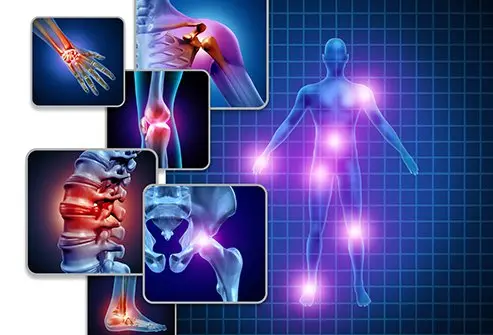Overview
Fibromyalgia is a chronic and often life-altering disorder marked by widespread musculoskeletal pain, persistent fatigue, and heightened tenderness in specific regions of the body. Unlike acute injuries, infections, or degenerative diseases that can usually be traced to a single anatomical cause, fibromyalgia stems from a complex interplay of nervous system changes that alter the way pain signals are processed by the brain and spinal cord. This altered processing leads to a magnified perception of pain, even from stimuli that would not normally be painful, which can make everyday activities such as walking, climbing stairs, or even sitting at a desk feel overwhelming.
In addition to pain, people living with fibromyalgia frequently experience a cluster of secondary problems. Disturbed sleep is common—many individuals wake up feeling unrefreshed or suffer from conditions such as restless leg syndrome or sleep apnea. Cognitive difficulties, often referred to as “fibro fog,” can cause lapses in memory, difficulty concentrating, and slowed thinking, which interfere with work and family life. Emotional and psychological stress, including anxiety and depression, can further amplify physical symptoms, creating a cycle that is challenging to break without structured support.
Across India and worldwide, fibromyalgia is increasingly being recognized as one of the leading causes of long-term, non-cancer chronic pain, especially among women between 30 and 60 years of age. This growing awareness is prompting healthcare providers to look beyond pain relief alone and address the multiple dimensions of the disorder. At DMPhysios—a highly regarded clinic in Noida specializing in spine and sports conditions with a strong emphasis on patient-centered rehabilitation—there is a dedicated focus on treating fibromyalgia holistically.
The team not only evaluates the physical aspects of pain but also considers lifestyle patterns, stress levels, activity limitations, and emotional well-being. This comprehensive approach helps patients move from merely coping with symptoms to actively regaining function, confidence, and quality of life.
Symptoms
Fibromyalgia manifests differently in every individual, but certain hallmark symptoms are common:
- Widespread Musculoskeletal Pain: Persistent, dull aching pain lasting at least three months, felt on both sides of the body and above and below the waist.
- Tender Points: Specific spots around the neck, shoulders, chest, hips, knees, and elbows that become painful with even mild pressure.
- Chronic Fatigue: People with fibromyalgia often feel exhausted even after a full night’s sleep. Sleep disturbances, including restless leg syndrome and sleep apnea, are also common.
- Cognitive Dysfunction (“Fibro Fog”): Difficulty with concentration, memory, and mental clarity.
- Mood Disorders: Anxiety, depression, and irritability may occur alongside pain and fatigue.
- Other Symptoms: Headaches, irritable bowel syndrome (IBS), numbness or tingling in hands and feet, increased sensitivity to light, noise, and temperature.
At DMPhysios in Noida, comprehensive assessments are used to identify these symptoms, as early recognition allows for more effective intervention.
Types of Fibromyalgia (Patterns & Subgroups)
Although fibromyalgia is classified as one condition, clinicians and researchers often describe subgroups or patterns based on symptom dominance:
- Pain-Dominant Fibromyalgia: Severe musculoskeletal pain as the primary complaint.
- Fatigue-Dominant Fibromyalgia: Chronic tiredness and sleep disturbance overshadow pain.
- Cognitive-Dominant Fibromyalgia: Pronounced memory and focus problems (“fibro fog”).
- Overlap Fibromyalgia: Combination of pain, fatigue, mood disorders, and IBS.
Recognizing these subgroups helps physiotherapists at DMPhysios tailor patient-centered rehabilitation plans for better outcomes.
Causes
The exact cause of fibromyalgia remains unclear, but it is believed to be the result of a combination of factors affecting the nervous system and pain processing pathways:
- Abnormal Pain Processing: Heightened sensitivity to pain due to changes in neurotransmitters like serotonin and norepinephrine.
- Genetics: Family history increases susceptibility.
- Infections: Certain viral or bacterial infections can trigger fibromyalgia symptoms.
- Physical or Emotional Trauma: Car accidents, surgeries, or severe stress can act as catalysts.
- Hormonal Imbalances: Dysregulation of stress hormones may influence pain perception.
At DMPhysios, a holistic approach is used to identify triggers—ranging from posture and activity levels to emotional stressors—to develop comprehensive treatment strategies for fibromyalgia.
Risk Factors
Some individuals are more prone to develop fibromyalgia due to certain risk factors:
- Gender: Women are more frequently affected.
- Age: Most common between 30–60 years, but can occur at any age.
- Family History: Increased risk if a close relative has fibromyalgia.
- Rheumatic Diseases: Conditions like rheumatoid arthritis, lupus, and ankylosing spondylitis increase the likelihood.
- Chronic Stress or Trauma: Emotional stress and traumatic experiences are strong triggers.
Understanding these risk factors allows DMPhysios to educate at-risk individuals and design preventive and early intervention programs.
Treatment
While there is no cure for fibromyalgia, a combination of treatments can significantly improve quality of life. Successful management involves medications, lifestyle changes, and rehabilitation therapies:
- Medications: Pain relievers, antidepressants, and anti-seizure drugs are sometimes prescribed to reduce pain and improve sleep.
- Lifestyle Modifications: Regular low-impact exercise, stress management, and healthy sleep routines help manage symptoms.
- Cognitive Behavioral Therapy (CBT): Helps address negative thought patterns and cope with chronic pain.
- Dietary Adjustments: Reducing caffeine, processed foods, and sugar may help in symptom management.
At DMPhysios, treatment plans are individualized, focusing on patient education, physical rehabilitation, and functional recovery.
Physiotherapy Treatment
Physiotherapy is a cornerstone in the management of fibromyalgia, as it addresses both pain and functional limitations. DMPhysios, a premier Noida-based clinic for spine and sports conditions offering patient-centered rehab, specializes in physiotherapy strategies tailored to fibromyalgia.
Key physiotherapy interventions include:
- Comprehensive Assessment
- Evaluation of pain distribution, muscle stiffness, posture, and activity tolerance.
- Screening for tender points and functional limitations to design a customized program.
- Education and Self-Management Training
- Explaining fibromyalgia’s mechanisms to patients reduces fear and improves adherence.
- Guidance on activity pacing and ergonomic changes.
- Exercise Therapy
- Aerobic Exercise: Low-impact activities like walking, swimming, or cycling improve cardiovascular health, reduce fatigue, and boost endorphins.
- Strength Training: Gradual resistance exercises enhance muscle endurance without exacerbating pain.
- Flexibility and Stretching: Gentle stretching relieves stiffness and maintains joint mobility.
- Functional Training: Incorporating daily activities to improve real-life performance.
- Manual Therapy
- Soft tissue mobilization and myofascial release reduce muscle tension.
- Gentle joint mobilizations improve range of motion and decrease discomfort.
- Hydrotherapy (Aquatic Therapy)
- Warm-water exercises reduce pain and improve circulation, making movement easier.
- Relaxation Techniques
- Breathing exercises, guided imagery, and mindfulness reduce stress and promote better sleep.
- Gradual Progression and Monitoring
- Physiotherapists at DMPhysios carefully adjust exercise intensity and frequency to avoid flare-ups.
- Use of outcome measures to track progress over time.
The goal of physiotherapy at DMPhysios is not just symptom relief but restoring independence, confidence, and quality of life for individuals with fibromyalgia.
Prevention
While fibromyalgia cannot always be prevented, certain strategies may reduce the risk or severity of symptoms:
- Stress Management: Regular relaxation, yoga, and mindfulness reduce triggers.
- Healthy Sleep Patterns: Establishing a consistent sleep schedule improves recovery.
- Regular Physical Activity: Low-impact exercise maintains muscle tone and reduces stiffness.
- Ergonomic Adjustments: Proper posture and workspace modifications decrease musculoskeletal strain.
- Early Intervention: Addressing persistent pain or fatigue early may prevent chronicity.
At DMPhysios, prevention programs combine education, exercise, and lifestyle guidance to help individuals at risk of fibromyalgia live healthier, more active lives.
Conclusion
Fibromyalgia is a complex and challenging condition that affects millions of people worldwide, often causing widespread pain, fatigue, and cognitive difficulties. Yet, with the right support and a multidisciplinary approach, individuals can regain control of their lives.
At DMPhysios, a Noida-based clinic specializing in spine and sports conditions with patient-centered rehabilitation, the focus is on comprehensive care for fibromyalgia. From detailed assessments to personalized physiotherapy programs, DMPhysios empowers patients to manage their symptoms effectively, restore function, and improve quality of life.If you or someone you know is struggling with fibromyalgia, do not wait for symptoms to worsen. Reach out to DMPhysios today for expert evaluation and a personalized rehabilitation plan. Together, we can take the first step toward a pain-free, more active future.









